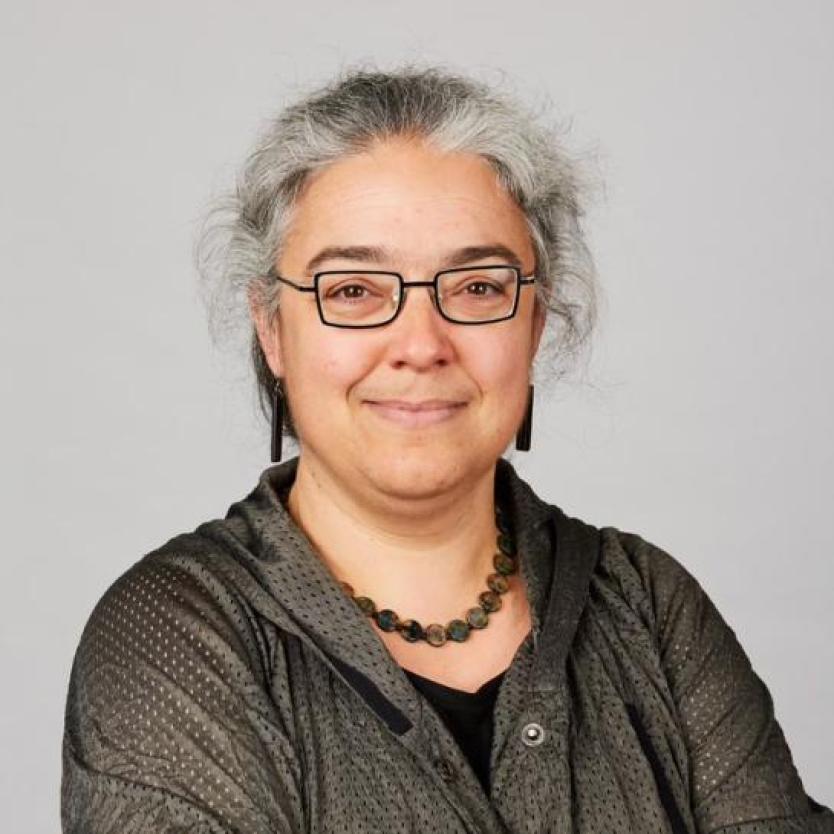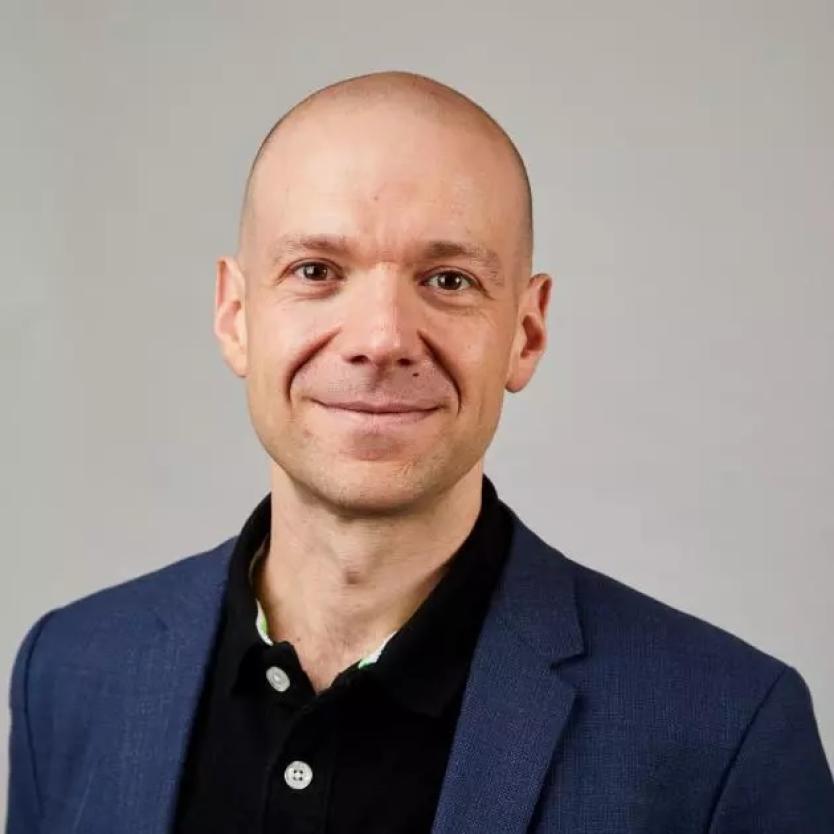
Austrian Nobel laureate Elfriede Jelinek has a new book out. The title, Angabe der Person, has been translated into Dutch as Persoonsgegevens (Personal Data), and according to translator and professor of German literature Inge Arteel, this is her most autobiographical work to date. What were the challenges in translation? And what does the future of literary translation look like? With Arvi Sepp, doctor of language and literature, Professor Arteel takes stock.
Inge Arteel worked on the translation of the book for a year. “Alongside my regular job at the VUB,” she explains. “There was a lot of hard work in the evenings and at weekends. But there was and is great satisfaction to it, otherwise you wouldn’t start.” Professor Arteel has been Jelinek’s “regular” translator into Dutch since 2003. They have met several times. “But since Jelinek was awarded the Nobel Prize for Literature in 2004, she withdrew from public life because she could no longer handle the attention. For the recent translation, I consulted with her via email.’

Inge Arteel
Professor Arteel, you know Elfriede Jelinek’s work better than anyone. How would you describe the author?
Inge Arteel: As the enfant terrible of Austrian literature. Someone who has been causing a stir with her books for some time. I think initially of The Piano Teacher, filmed by Michael Haneke, and the book that made her famous. In Persoonsgegevens, she writes for the first time about her Jewish relatives who were murdered or deported during World War II, and also describes some of the Nazi leaders who were responsible for her family’s deportation. That unprocessed Nazi history is a common thread in all her works, which are always multi-layered. Today, she is 77 and has long been known mainly as a writer of texts for the theatre.
What makes translating Jelinek’s novels special?
Inge Arteel: Jelinek doesn’t write traditional novels, but experimental prose that stands out for its plays on words, language games, references to current events that you do not immediately understand... In that respect, you translate Jelinek word by word, sentence by sentence, because there is no coherence on first reading. And yes, that makes it extra challenging.
Did you translate Persoonsgegevens in Southern or Northern Dutch?
Inge Arteel: In Northern Dutch, the standard language used by the publisher, Querido. Sometimes I did use a Flemish word in the translation, I confess, but then the publisher usually asked for an alternative anyway.
Professor Sepp, you carry out academic research on literary translation. How have you seen the role of the translator evolve in recent years?
Arvi Sepp: The visibility of the literary translator has definitely increased in recent years. There is greater social awareness of the creative importance of the translator and more and more often you see his or her name appearing on the cover of a book as well. Translation is not seen merely as a conversion from language A to language B, but as a fundamental form of co-creation. At the same time, financial support – from Literatuur Vlaanderen, among others – for the independent literary translator has also increased in recent years, although it remains a challenge to be a literary translator as your main profession. Unlike academia in English-speaking countries, it is a pity that translations such as that of Elfriede Jelinek by Professor Arteel do not count as official publications in Belgium today, even though they are an essential contribution by literary scholars to the transnational dissemination of literature.
And what about the rise of translation tools and AI?
Arvi Sepp: There are several professional organisations of literary translators such as the Association des traducteurs littéraires de France (ATLF) that are asking for the use of AI to be legally regulated. This regulation is primarily intended to protect the profession, to prevent unfair competition, but also, in the same context, to ensure that its use is not subsidised by the government. In practice, we find that while AI can be an important tool for a literary translator, it is still insufficient to capture the multi-layered character of a text.
Inge Arteel: I myself did not use AI in my translation, but I did test it once with the translation tool DeepL. For instance, Jelinek used the typically Austrian word “Backhendlfriedhof” in her book, which literally translated is “a graveyard for roast chickens” (also according to DeepL), but is actually used as an image for “the fat paunch of someone who has gorged himself”.

Arvi Sepp
How do you see the future of literary translation?
Arvi Sepp: The use of machine translation is now really well established and works very well – to a certain extent – for legal, medical and technical texts, for example. Nevertheless, the role of the translator remains fundamental because of their technical expertise, intercultural competence and text mastery. In the future, AI will certainly progress even further, but whether it will ever be able to take over the role of a literary translator as well as their interpretation of the text in question, I doubt it. In the US magazine The Atlantic a few weeks ago, for instance, literature was called “the last frontier of machine translation” by Jeremy Klemin. Literary translation requires hermeneutics, the ability to grasp the openness of a text, which no AI is yet capable of. Furthermore, there is a growing sensitivity to issues of gender identity and ethnicity, which influence how translation is done.
Finally, Professor Arteel, what for you is the art of translation?
Inge Arteel: Finding a good balance between your personal interpretation of the text and the possible translation options associated with it, and then choosing the one that reflects the source text as faithfully as possible. It’s a question of constantly balancing creativity and authenticity, so to speak. In any case, as a literary translator you are always behind or next to the author, never in front of them.
Inge Arteel is a professor of German literature at the VUB. She obtained her PhD with a doctorate on the prose of Austrian writer Friederike Mayröcker. She mainly researches contemporary Austrian literature and has published on the reception of Elfriede Jelinek’s theatre in the Netherlands and Flanders. She has translated four of Jelinek’s previous books.
Arvi Sepp is a doctor of German literature and professor of literary translation at the VUB. His work focuses mainly on 20th-century German literature and German-Jewish literature in the context of the Holocaust and the reception of Jewish thought. In this context, multilingualism and transculturalism in literature and the theory of literary translation are also among his areas of expertise.